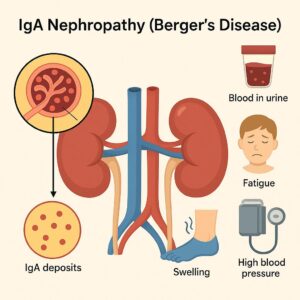IgA nephropathy is a chronic autoimmune kidney disease where a protein called immunoglobulin A (IgA) builds up in the kidneys’ filtering units (glomeruli). This buildup causes inflammation and damage, slowly impairing the kidneys’ ability to filter waste and excess fluid from the body.

